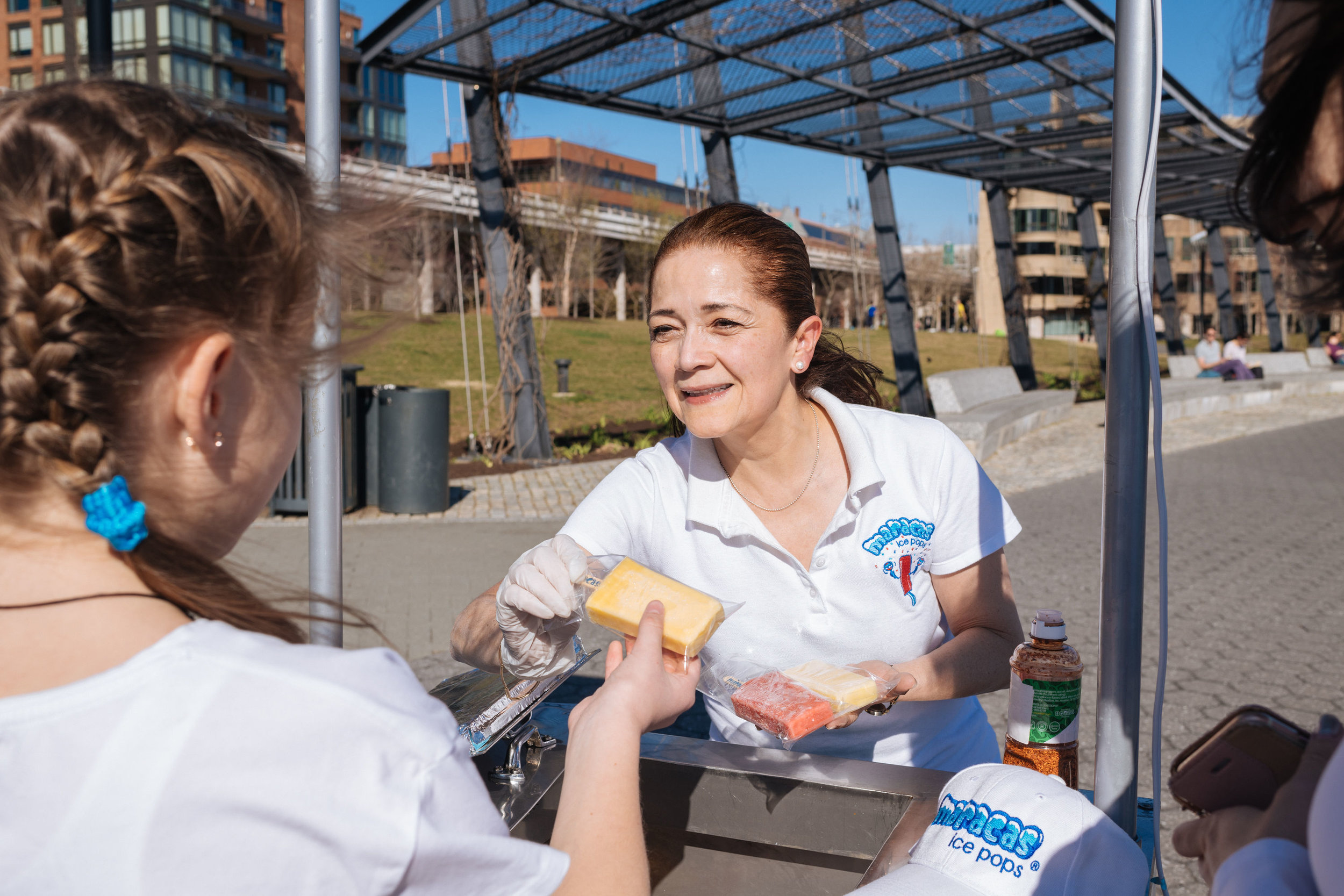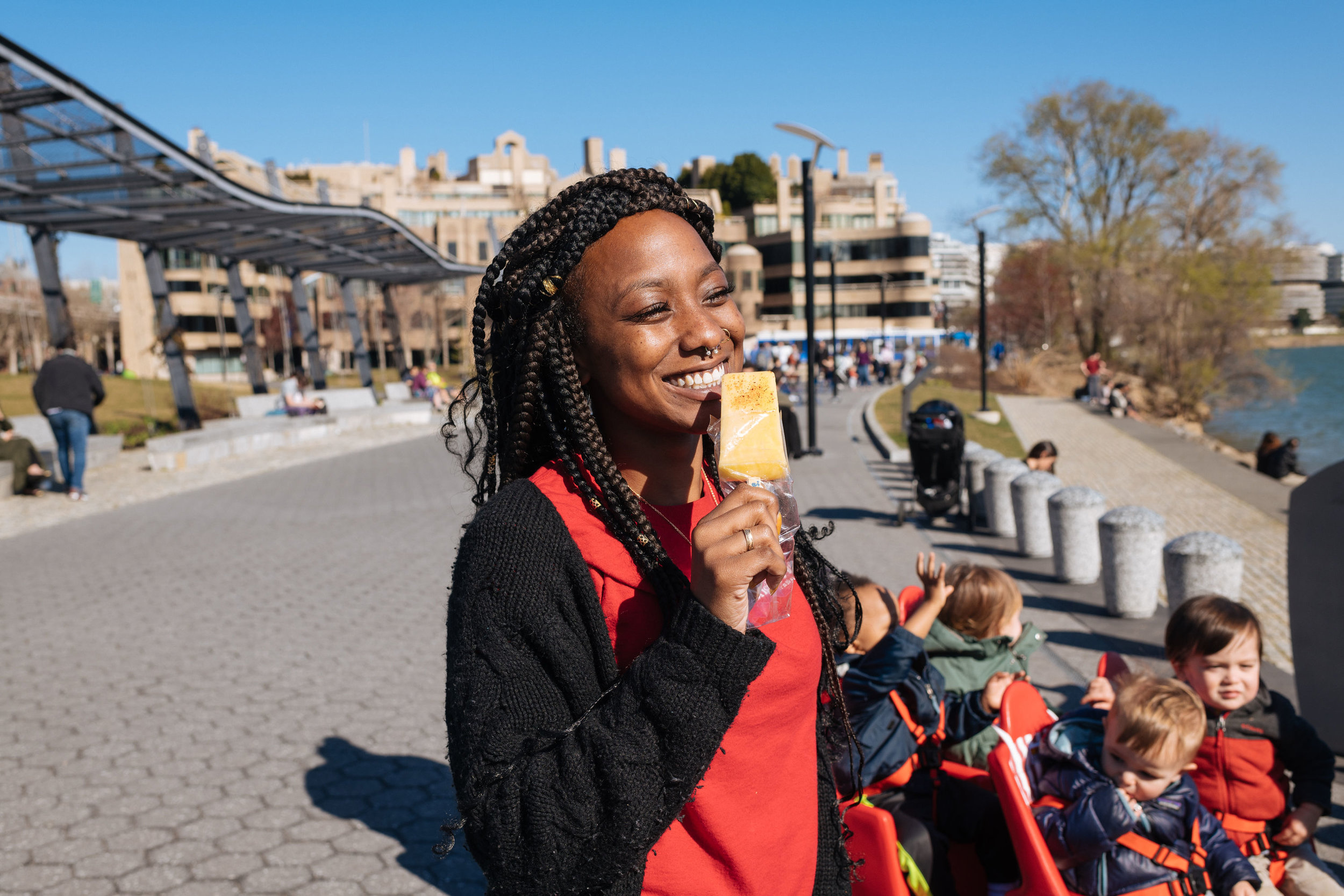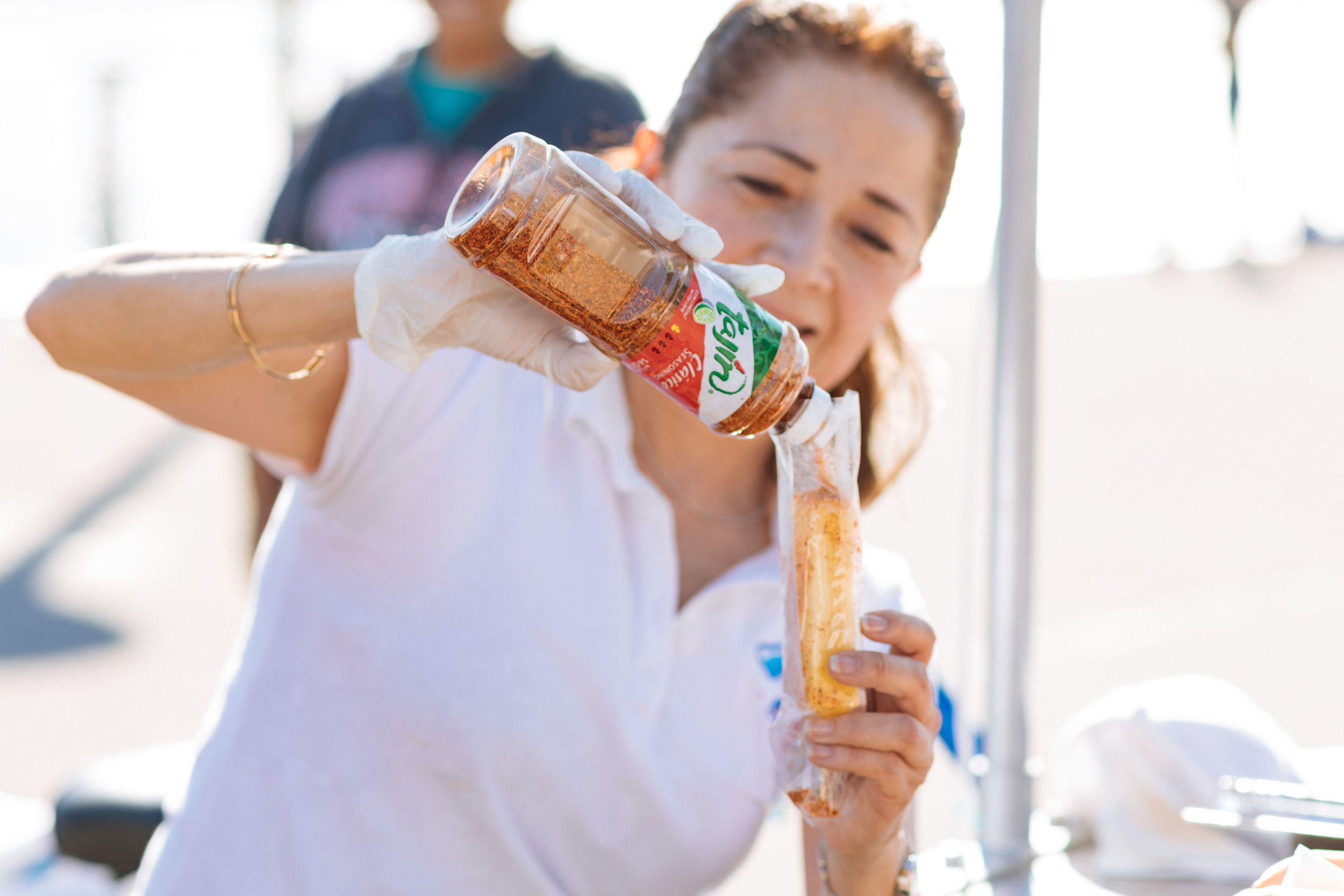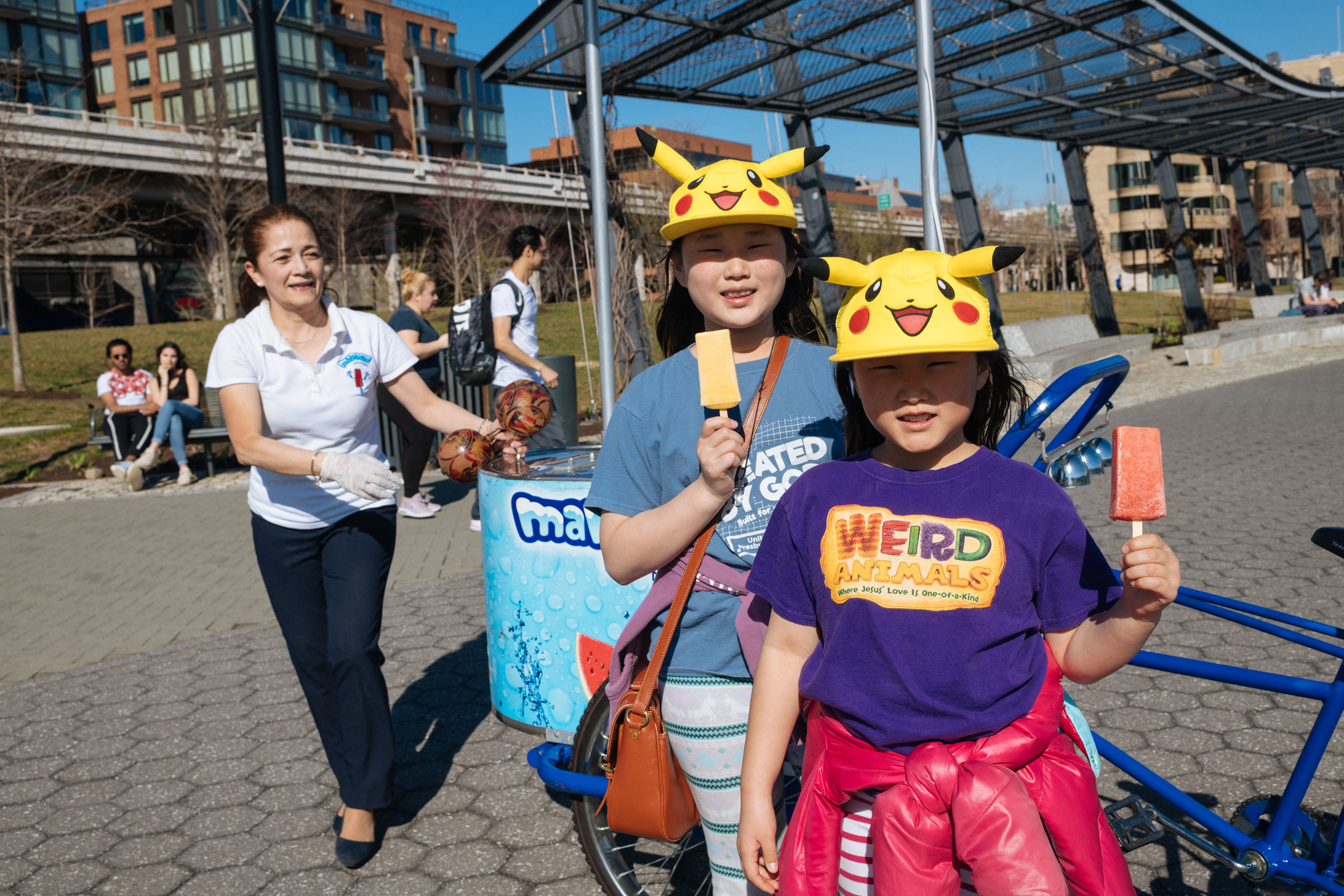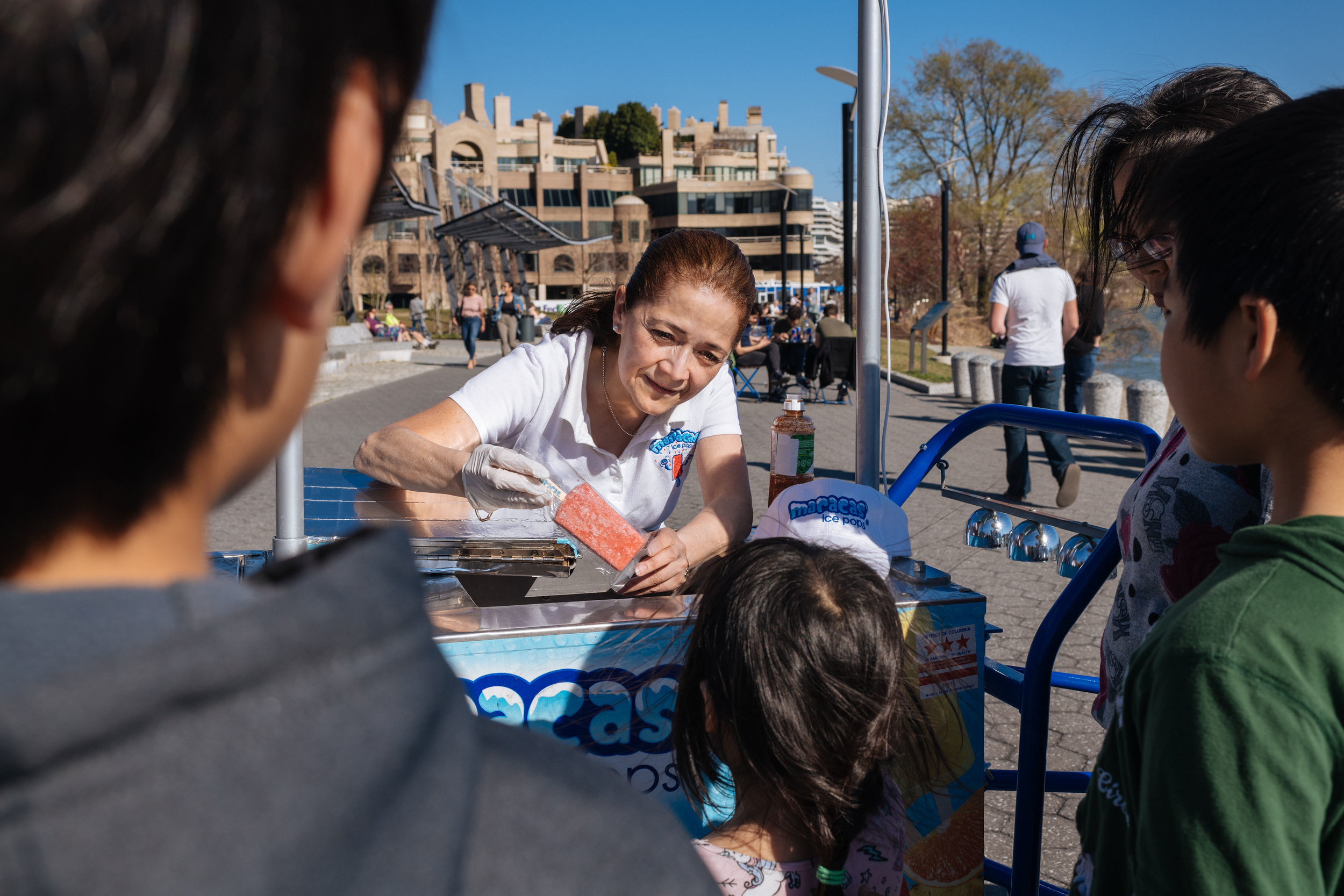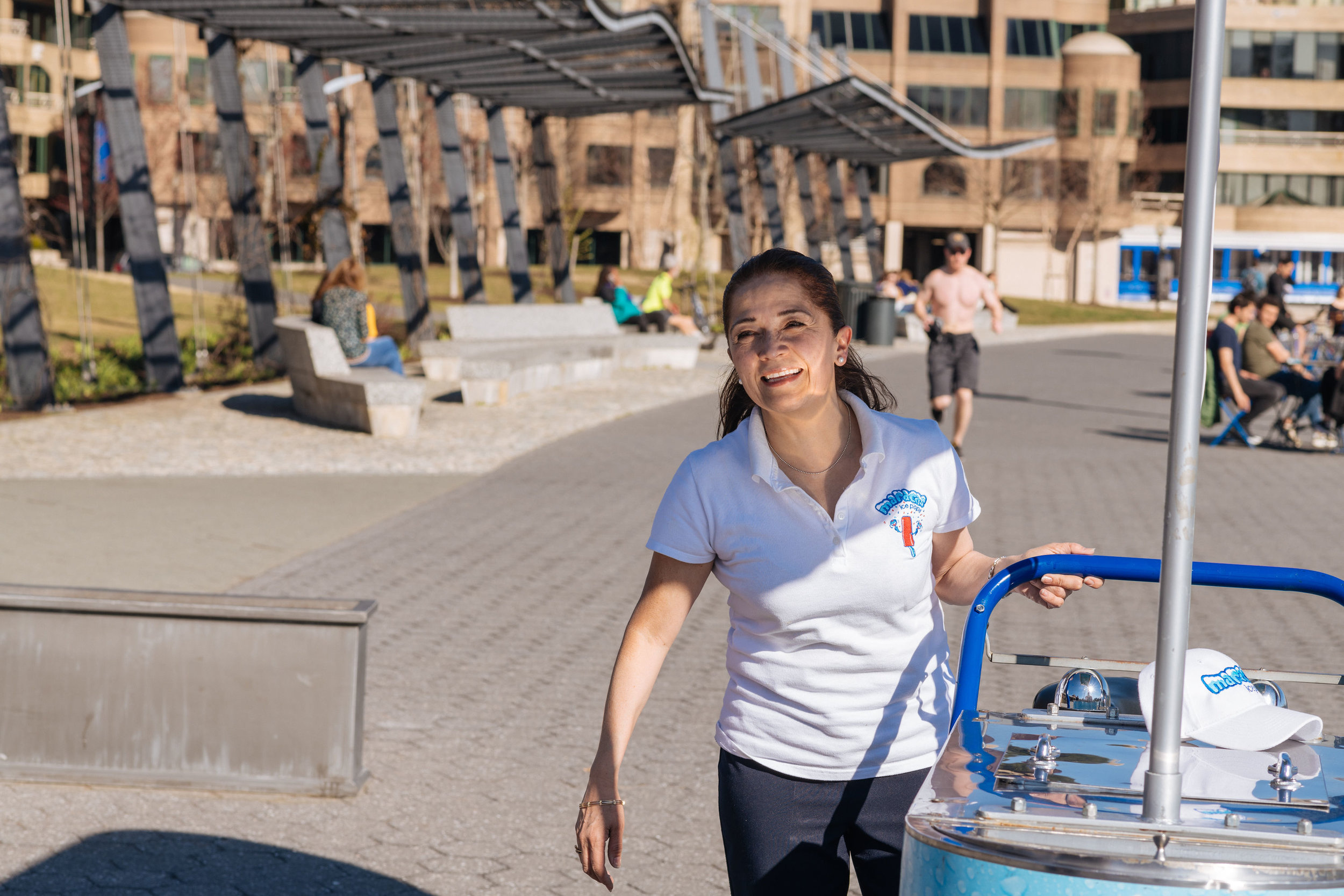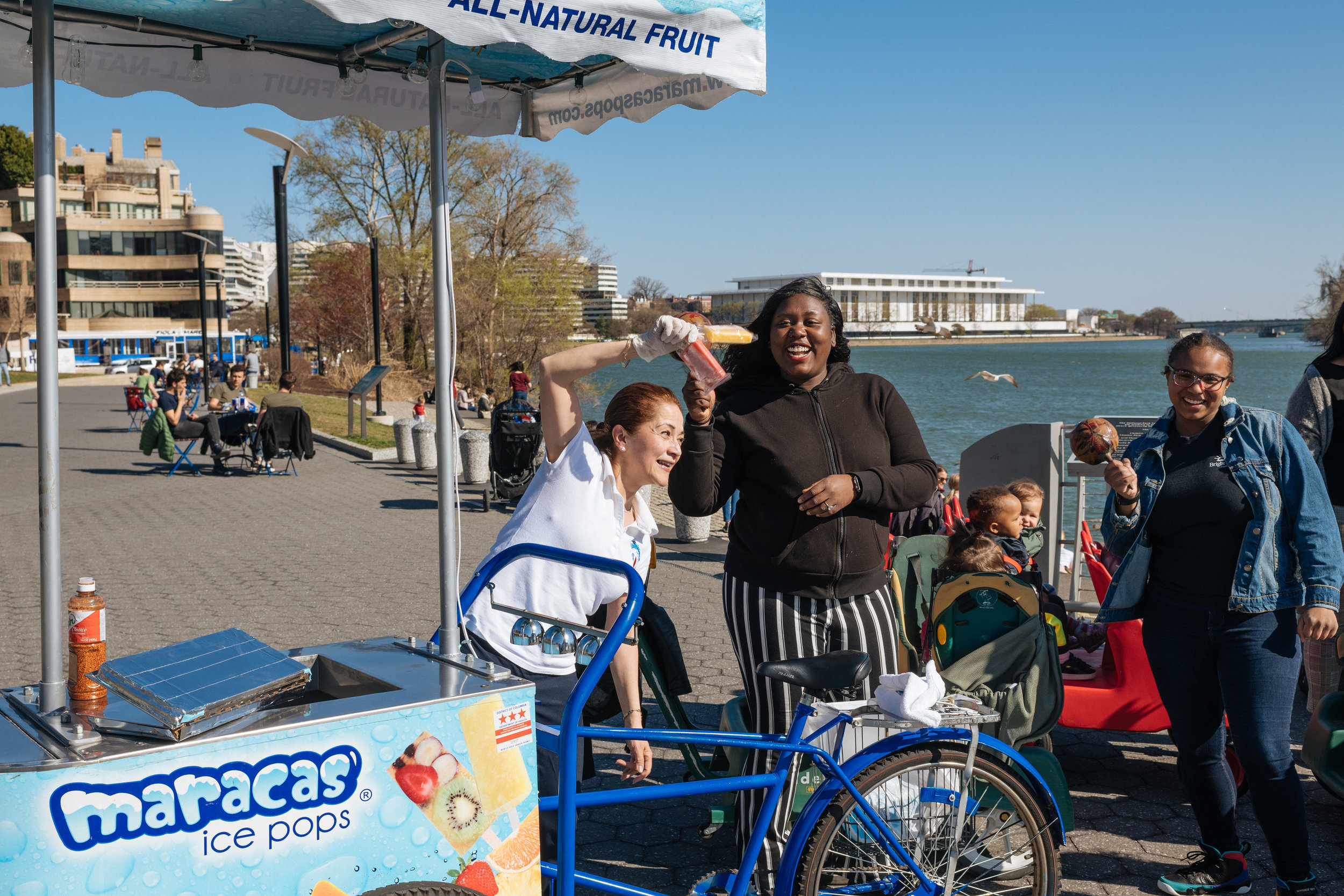‘I Do Everything I Can to Bring the Ice Pops to the People’
Julia Padierna-Peralta is something of a fruit whisperer.
Born and raised in Puebla, southeast of Mexico City, she grew up surrounded by an abundance of fresh produce—often enjoyed in the form of a paleta, or ice pop. When Julia came to the United States in the late 80s as a transfer student at Georgetown University, she missed that piece of home.
‘MARACAS Ice Pops is born from a desire to share a type of frozen treat that I couldn’t find around for so many years. Since my early 20s, I have always had the desire to have my own company in the frozen desserts industry that would make use of fresh fruits.’
With that dream in the back of her mind, Julia earned a Master’s Degree at the London School of Economics, then returned to DC to work on NAFTA negotiations for the Mexican Senate. She eventually went to law school and became an international trade lawyer, working for U.S. Customs and Border Protection at the Department of Homeland Security, and at a handful of large law firms.
Motivated by a desire to produce ‘an alternative to traditional frozen treats,’ Julia slowly acquired the technical training required to start MARACAS—named in honor of her late ‘dear mommy,’ a singer who was fond of the Latin American instrument.
‘I have about 15 years of training in what I would call the art of freezing—because there is a science behind the freezing of fruits and vegetables. I have obtained about six or seven years of professional training with chefs in Mexico, and also with an advisor to a very large ice cream company here in the U.S. regarding the production of frozen treats.’
Over a decade ago, Julia purchased second-hand equipment in Mexico and began producing fresh-cut fruit ice pops for her family, learning a great deal through trial and error. In late 2014—after five years of experimentation—she founded MARACAS Ice Pops in DC and sold her first one near the Georgetown waterfront.
‘It’s the art of understanding the fruits, because every fruit is like a person, has a personality. The kiwis from New Zealand are different from the kiwis in Chile, and Italy, and the U.S. The growing of kiwis in New Zealand has soil that is very different from Chile, and the mangoes from Mexico are very different from the mangoes in Pakistan.’
Julia goes after the fruit that is ‘prime for the pop,’ working with large distributors in DC and Baltimore, while also directly sourcing ingredients like hibiscus from Mexico. She has a team who assists with the acquisition and cleaning of the fruit, but Julia does all of the production.
‘There are no recipes. It’s a balance of ingredients, and it’s enhancing and letting the actual fruit show its flavor. For example, lime is one of the most interesting ice pops to prepare because you may have 100 limes and there might be one or two that are tart, and one tart lime is going to kill your batch and change the flavor. Pear is a very soft, very delicate personality. Lime is going to take over. Because of all the years of training, I make every effort and I put in all the necessary time to keep the quality and uniformity.’
It’s that dedication to the product and natural ingredients that distinguishes MARACAS from the rest. Julia says she wanted to offer an alternative to the traditional ice pops most Americans grew up consuming, often full of high fructose corn syrup, dyes, and artificial flavoring. Save a small amount of organic sugar cane and frozen desserts texturizer, MARACAS Ice Pops are 100% natural.
If there’s anything that differentiates them from the paletas in Mexico, it’s a few of the flavors. Julia says guava, hibiscus, fig, and avocado are all popular ice pops back home, largely because those fruits and flowers are readily available. Strawberry is her top seller in DC, followed by watermelon, mango, pineapple, hibiscus, and lime. Julia recently introduced coconut and corn, both of which are already hits.
‘It’s a little bit easier to find more variety of fruits in Mexico, but I see an inclination that people have to taste new flavors.’
Since its inception, MARACAS has grown largely through word of mouth—the colorful MARACAS Ice Pops trike easily spotted by 1 pm most weekends near the Georgetown waterfront, and during the Georgetown BID’s Sunset Cinema summer outdoor movie series. It’s the same trike Julia pushed 60 blocks to and from Southwest when the business first launched.
Today, MARACAS’ main market is Georgetown and the Dupont farmer’s market, though it’s steadily expanding through private events and catering. The customers remain at the heart of it all.
‘I feel that MARACAS is not just a top quality ice pop, it is an item geared to bring joy, geared to bring people together. We see families approaching, kids approaching, couples, people of all ages. It’s the sharing of something that is quality and good that brings joy to people. There is no price to that. Even sharing a pop for free that brings joy—that is the greatest gratification. We do everything that is needed to bring the pops to the people who love them.’
By day, Julia is still a practicing attorney, but says MARACAS is as important to her as law.
‘I have always been driven by quality, both in my profession as an attorney and in my ice pops entrepreneurship. It’s hard to balance but it’s a joy. Many people grew up eating ice pops, and to see the cart triggers memories of childhood. MARACAS is a full joy.’
